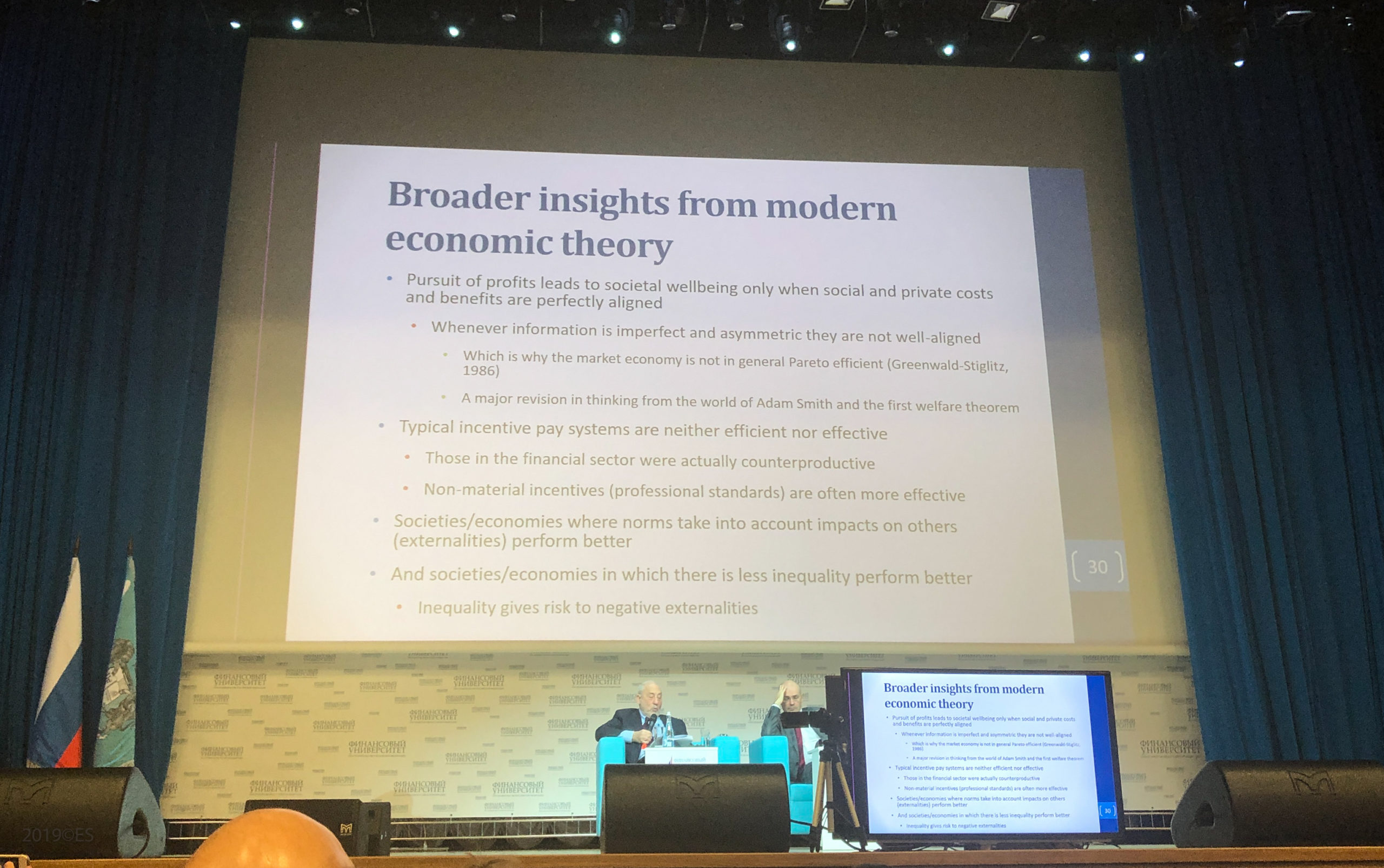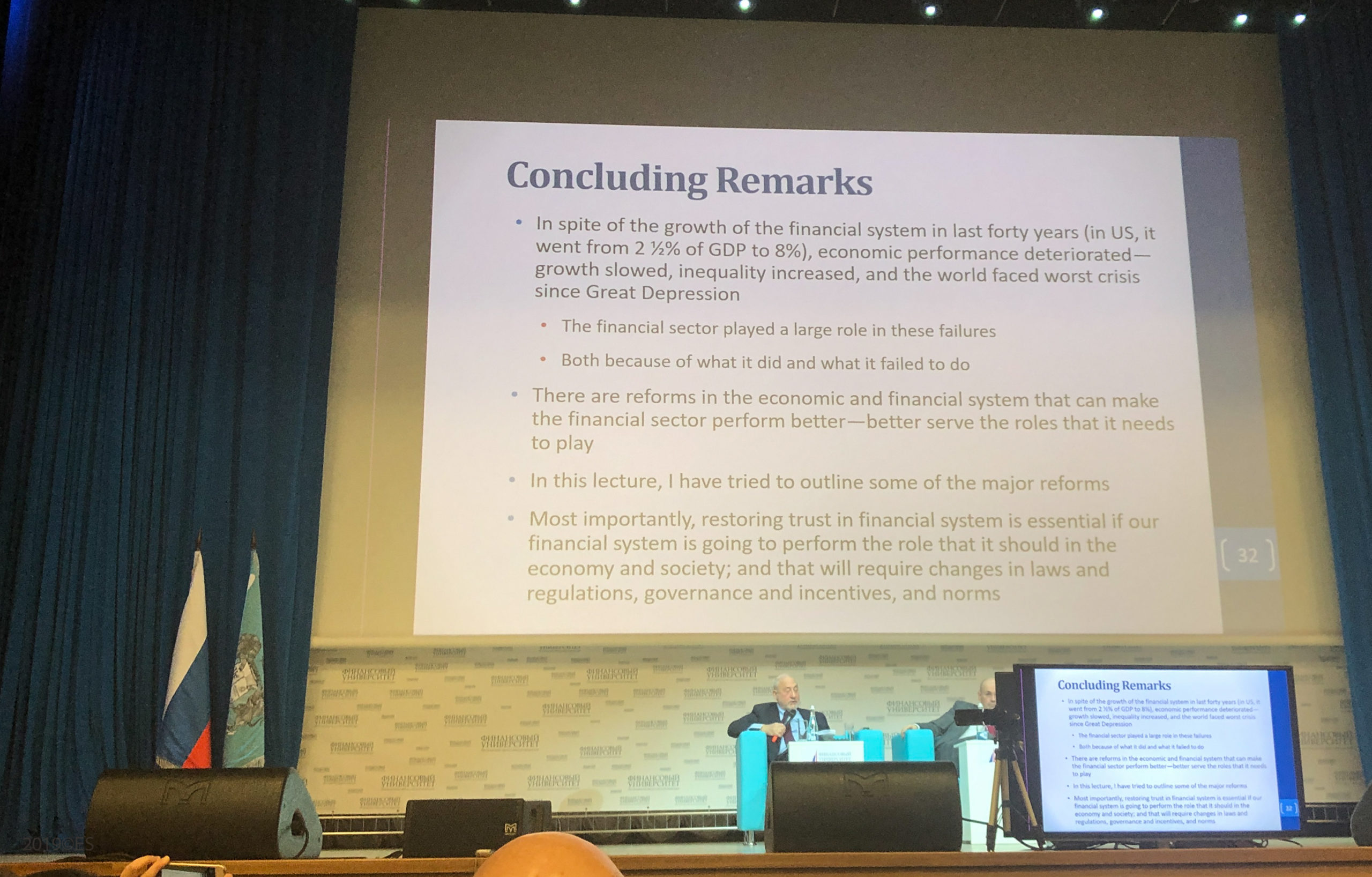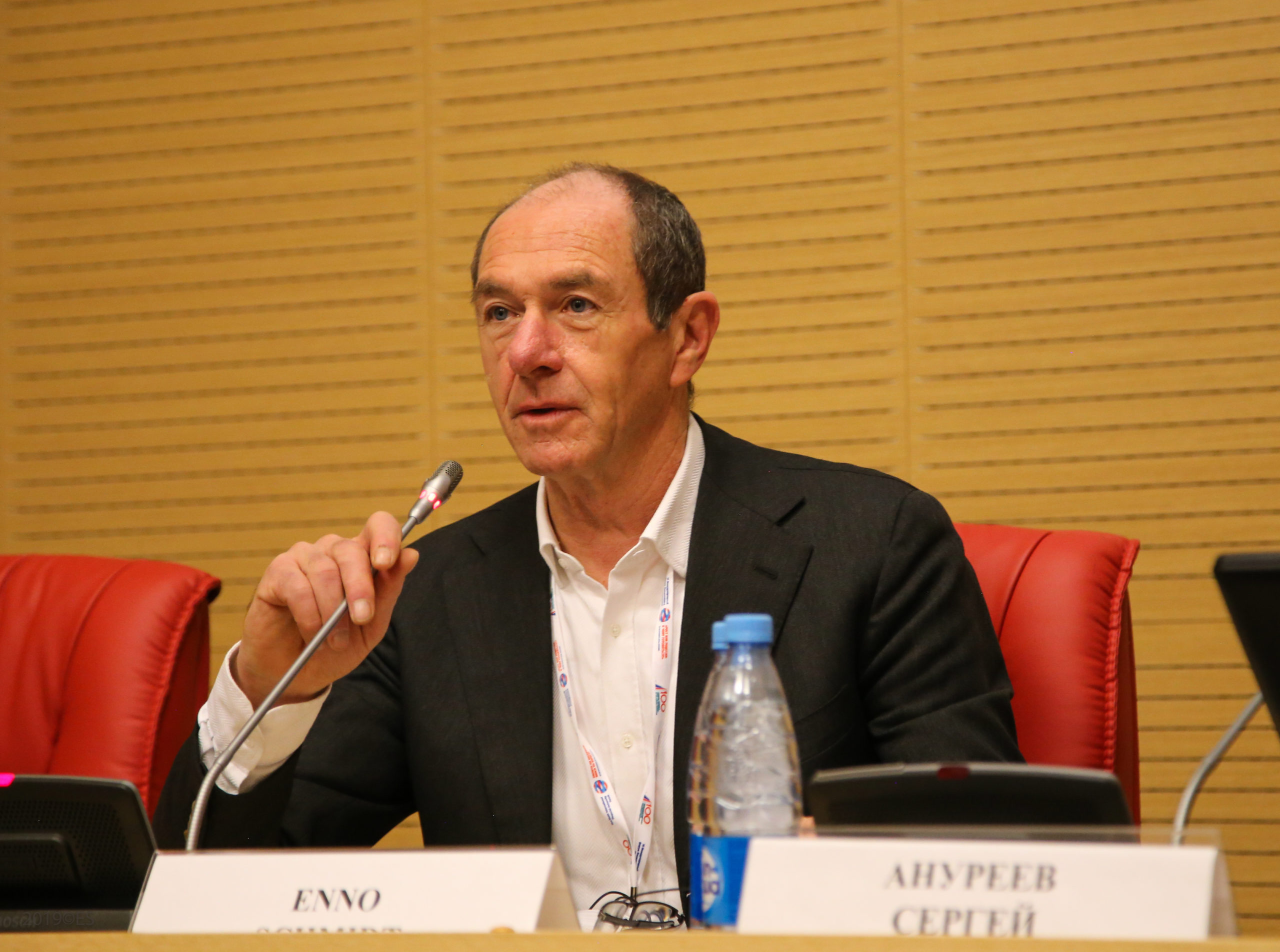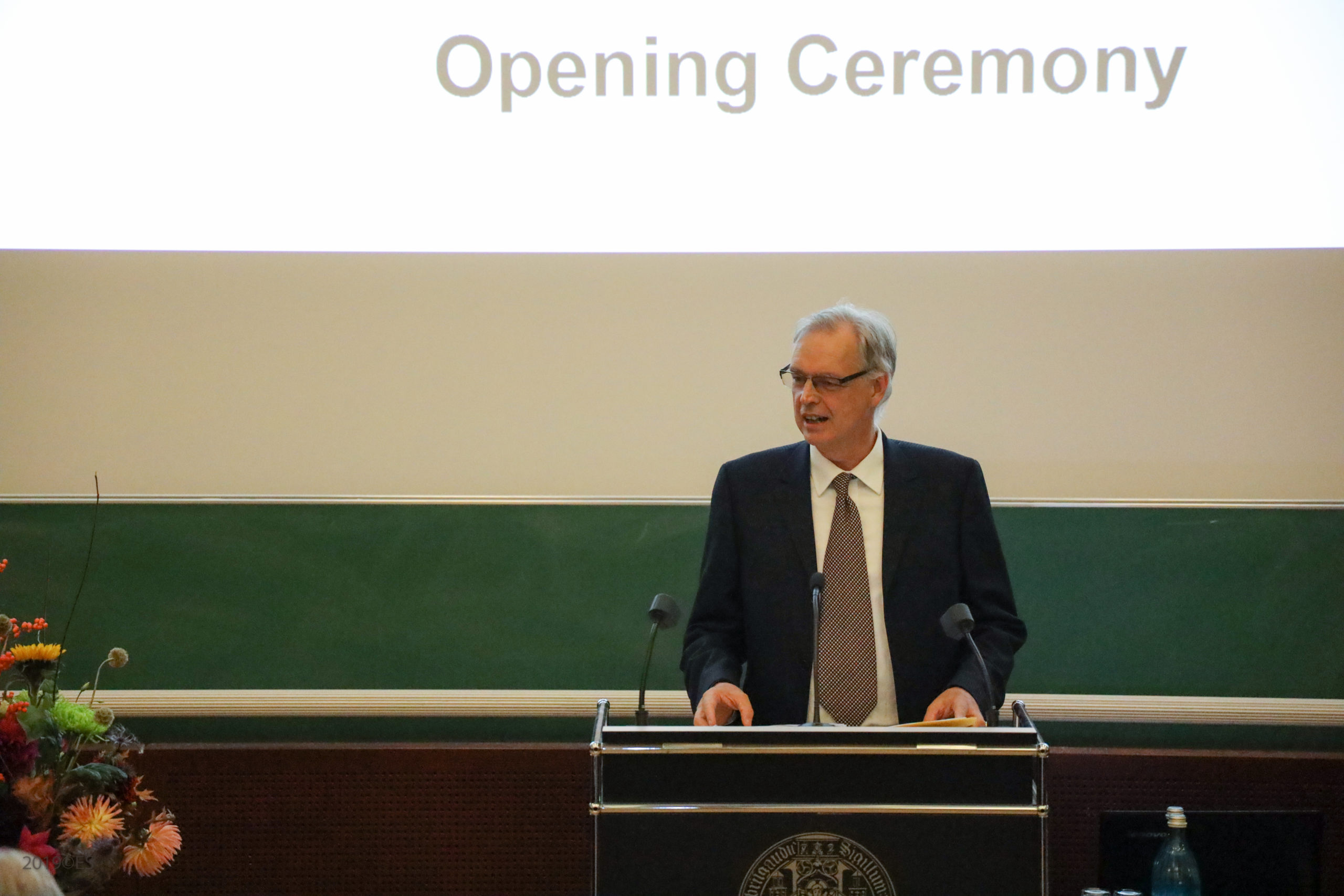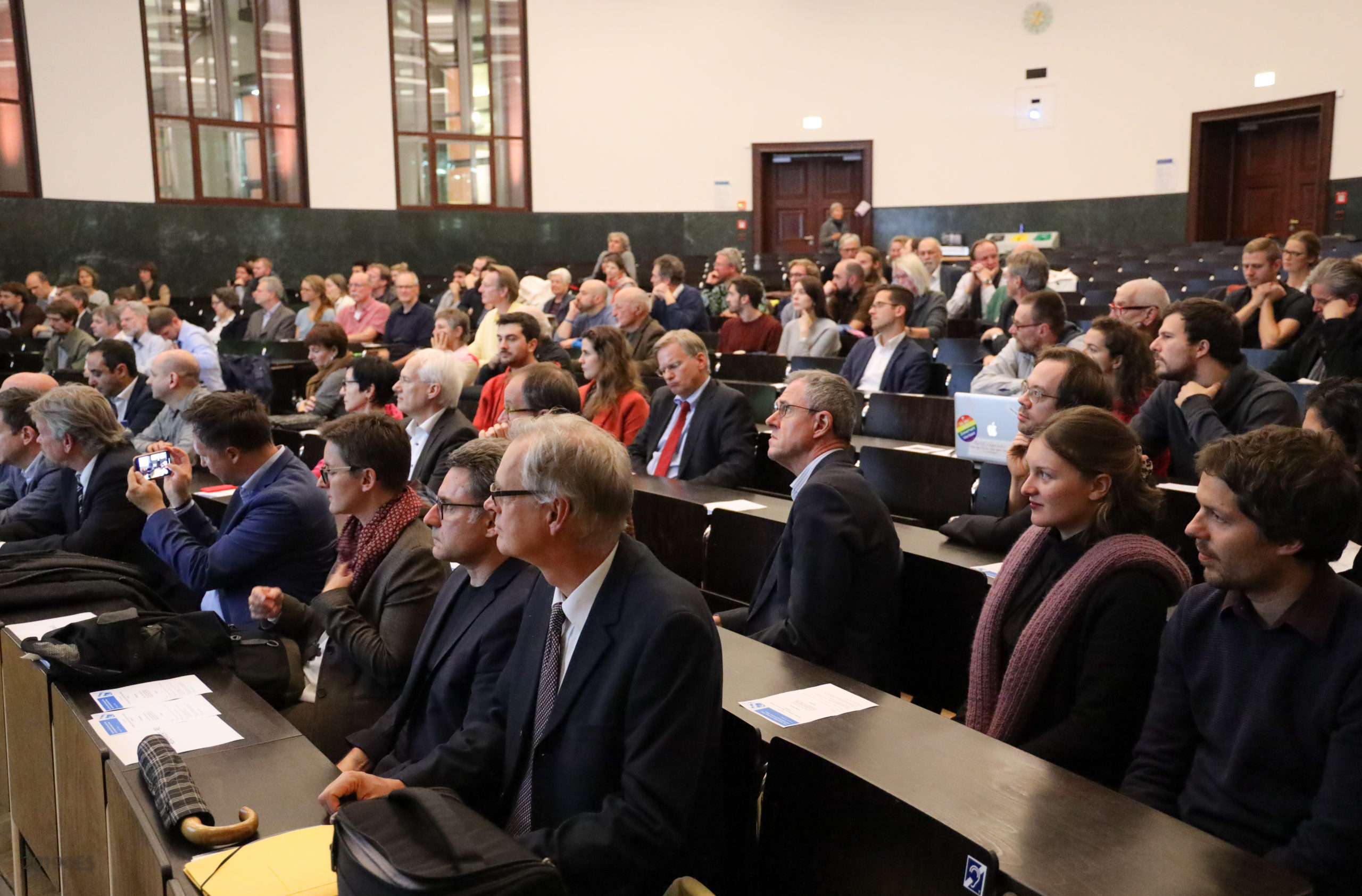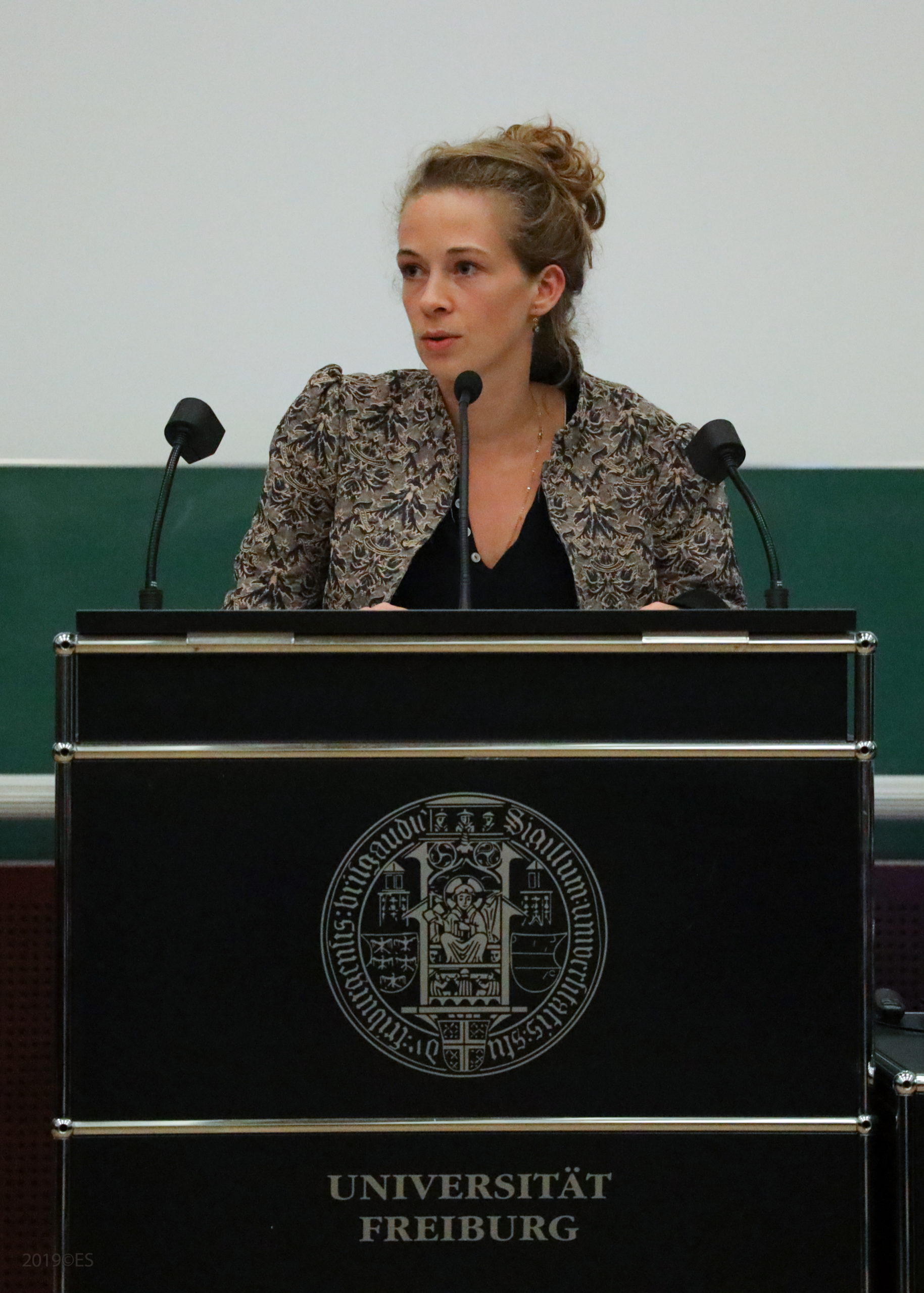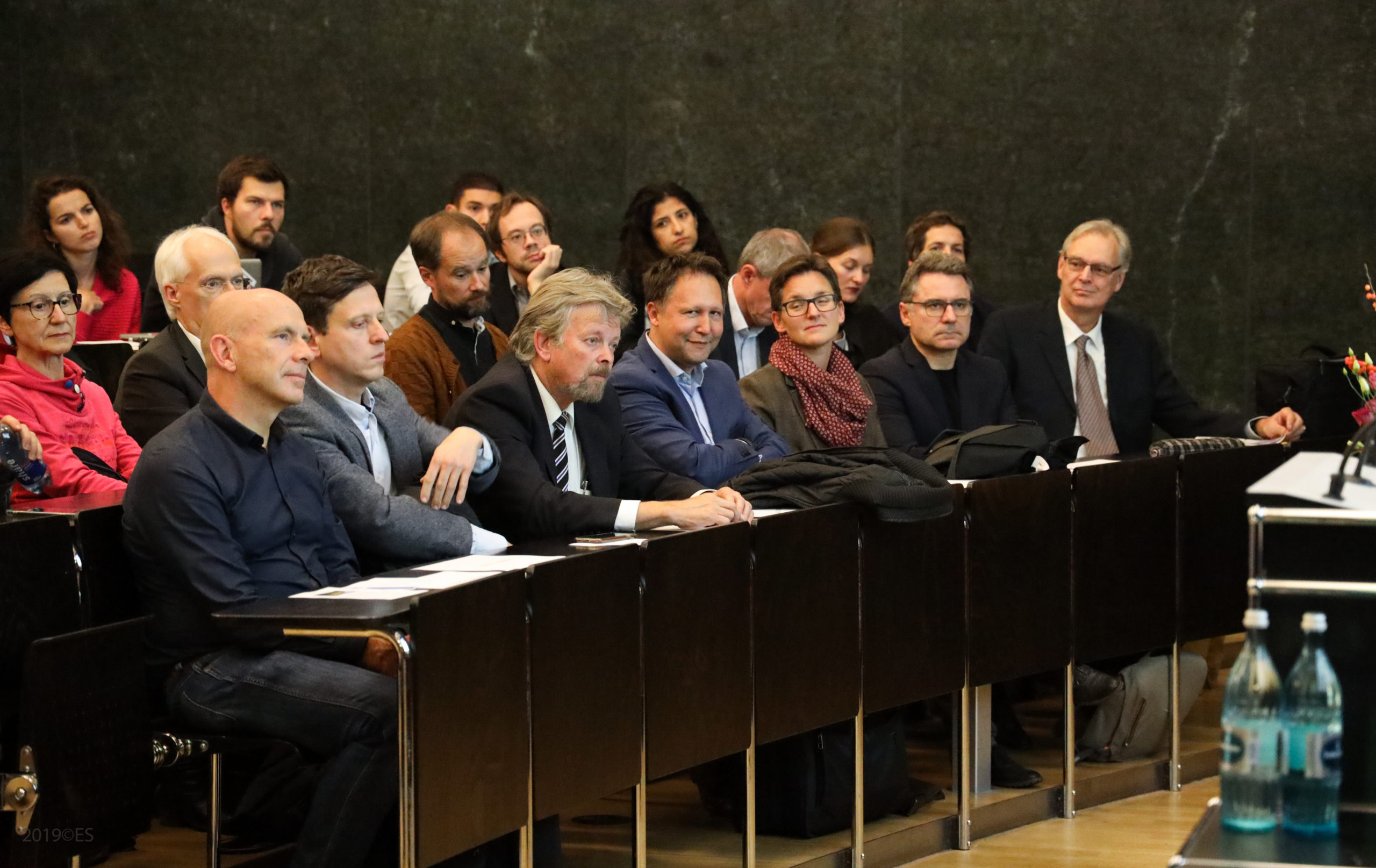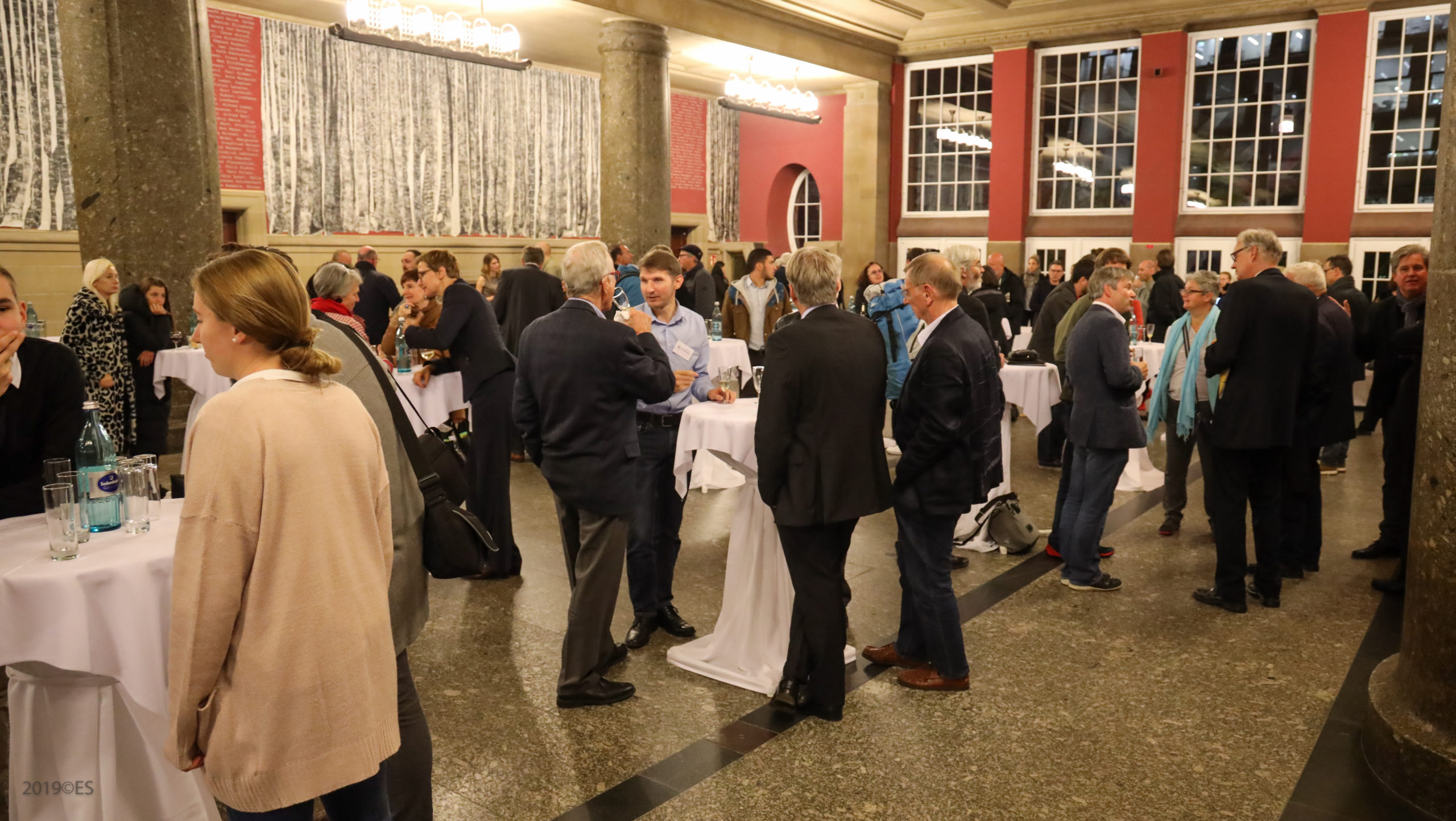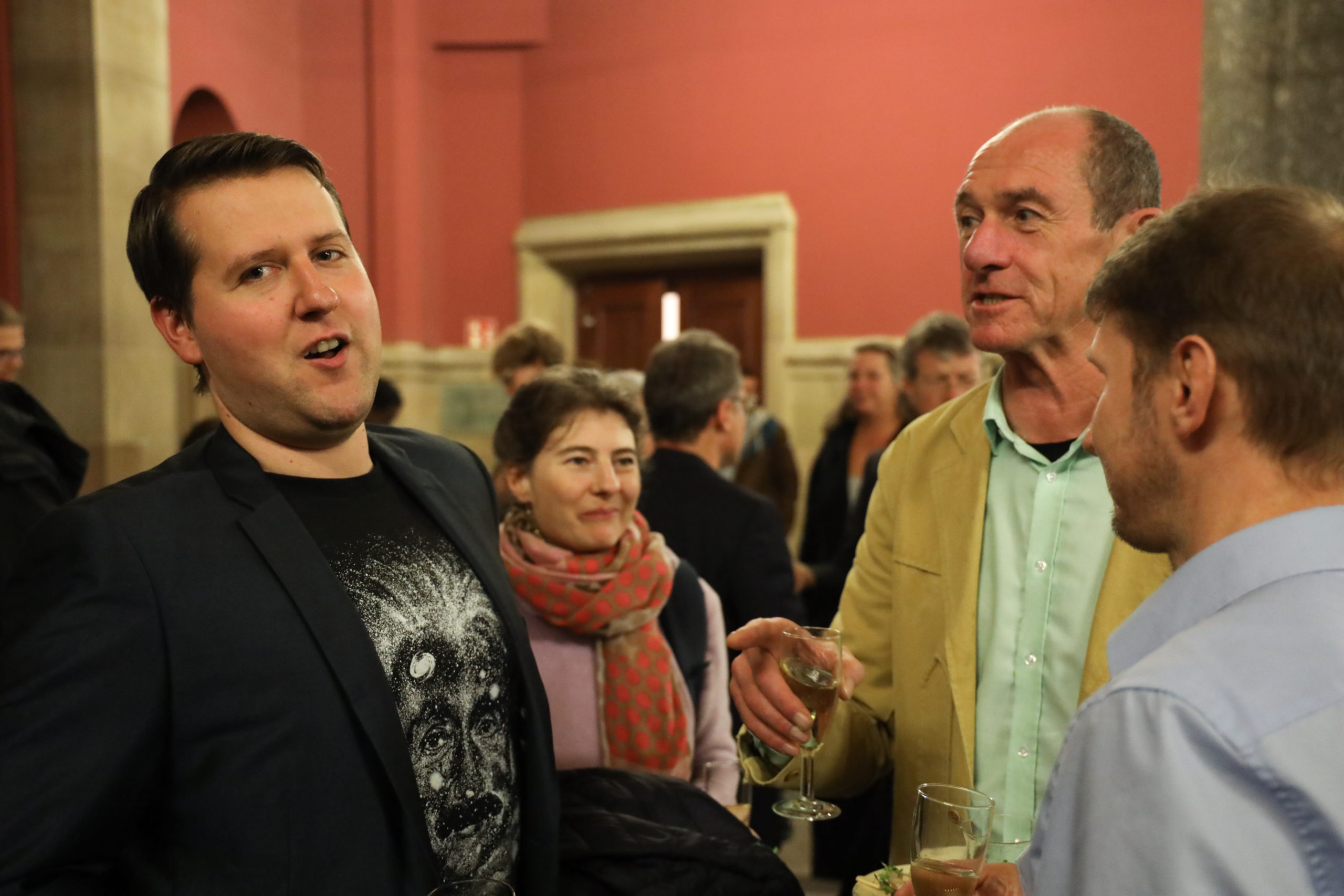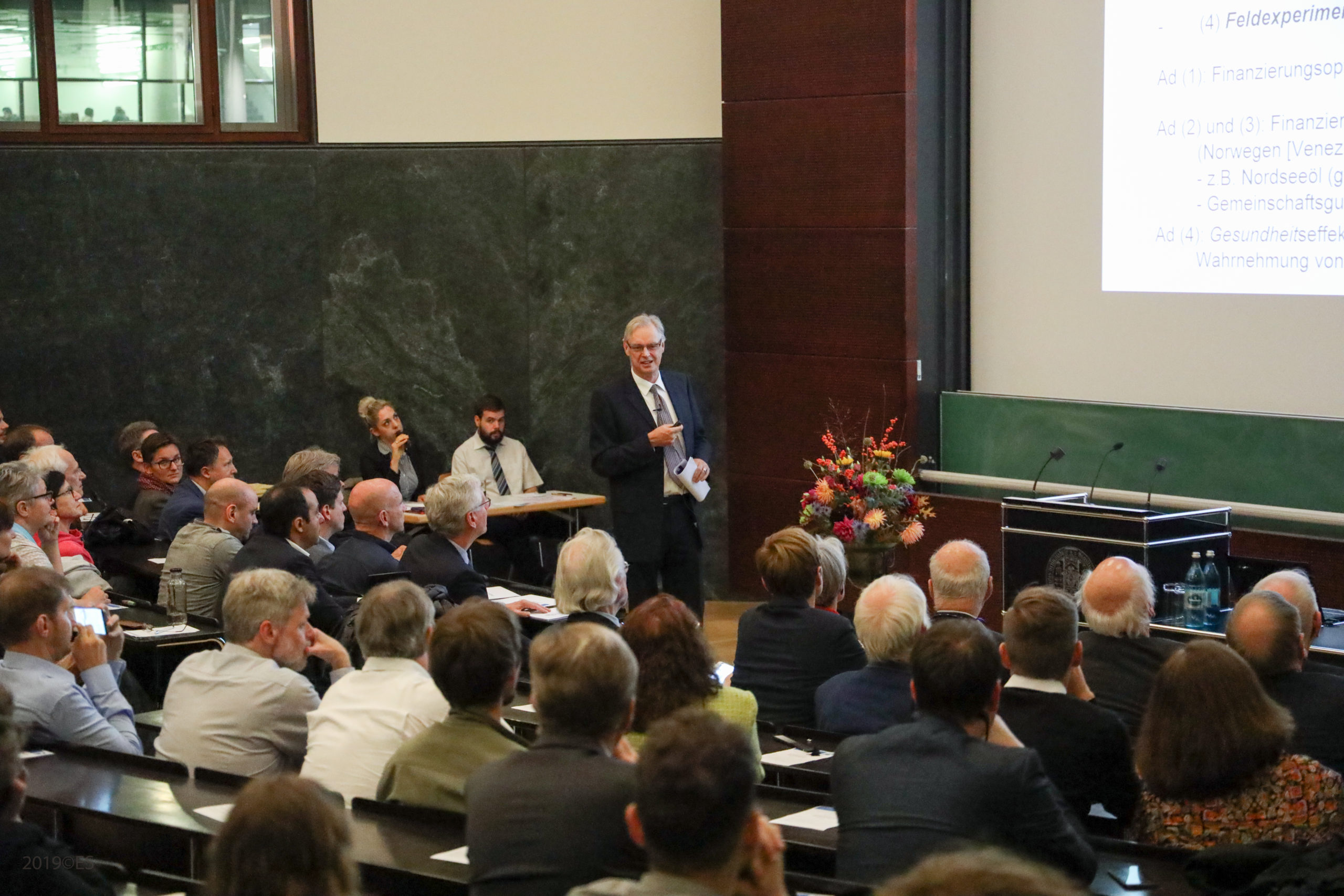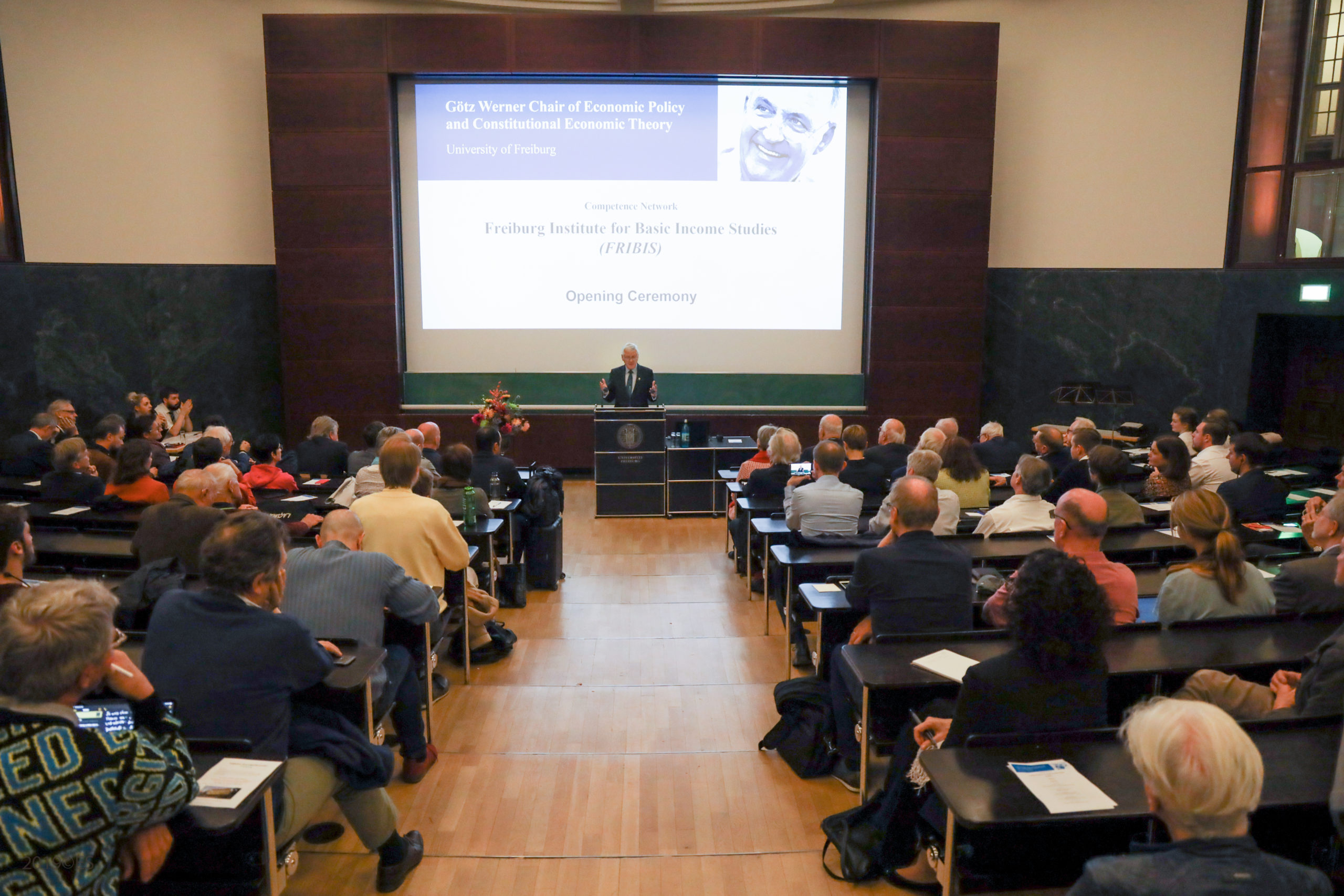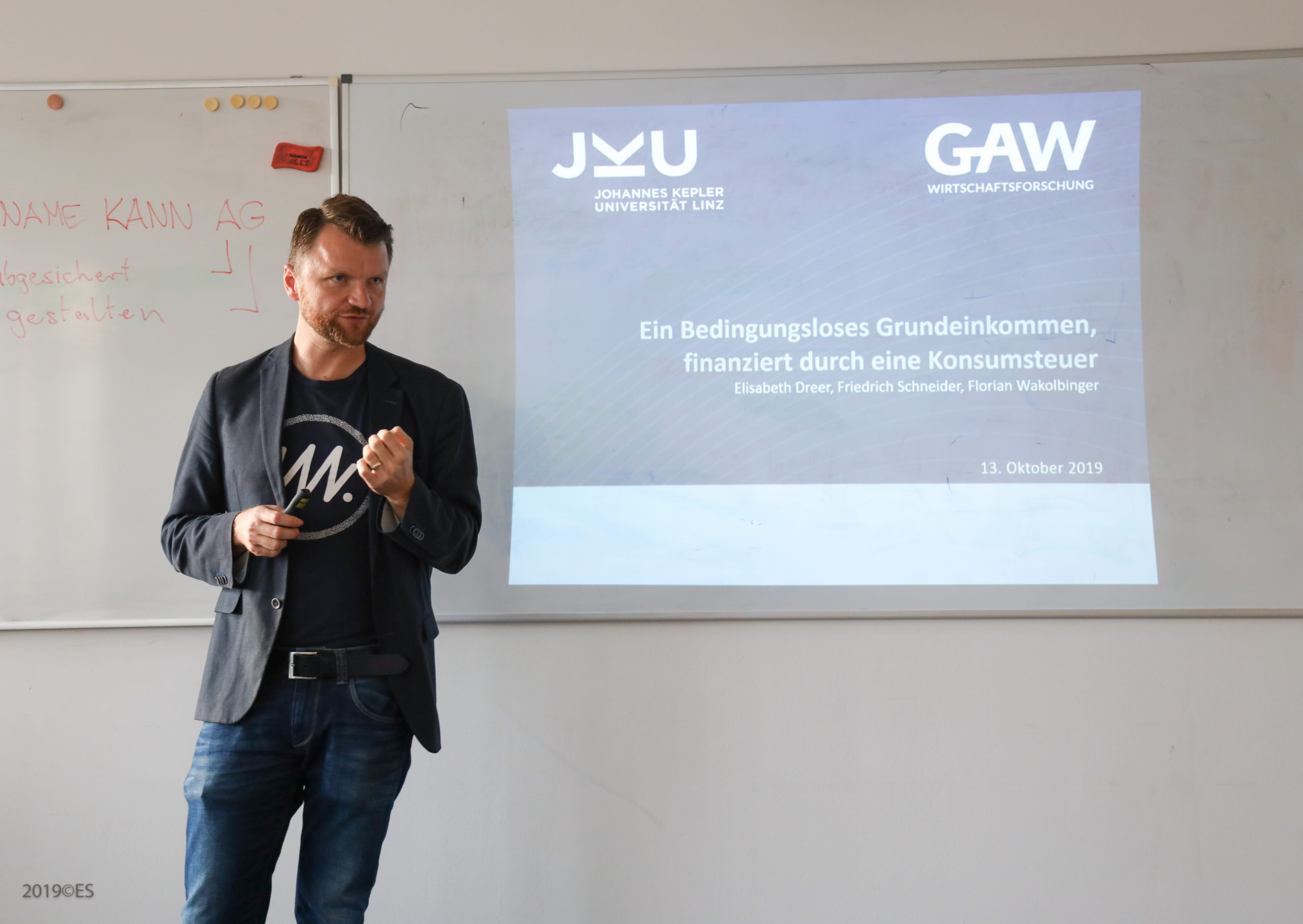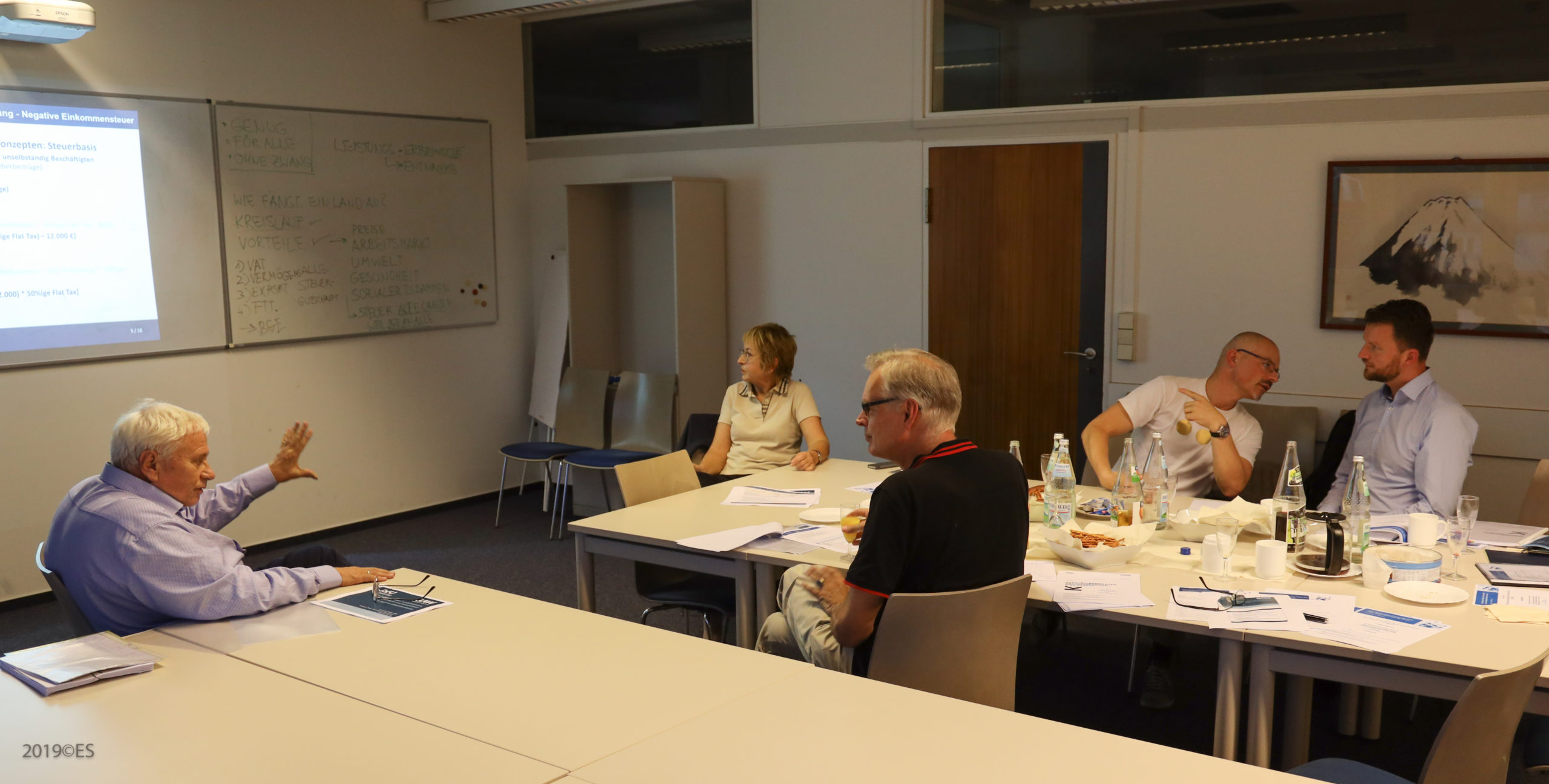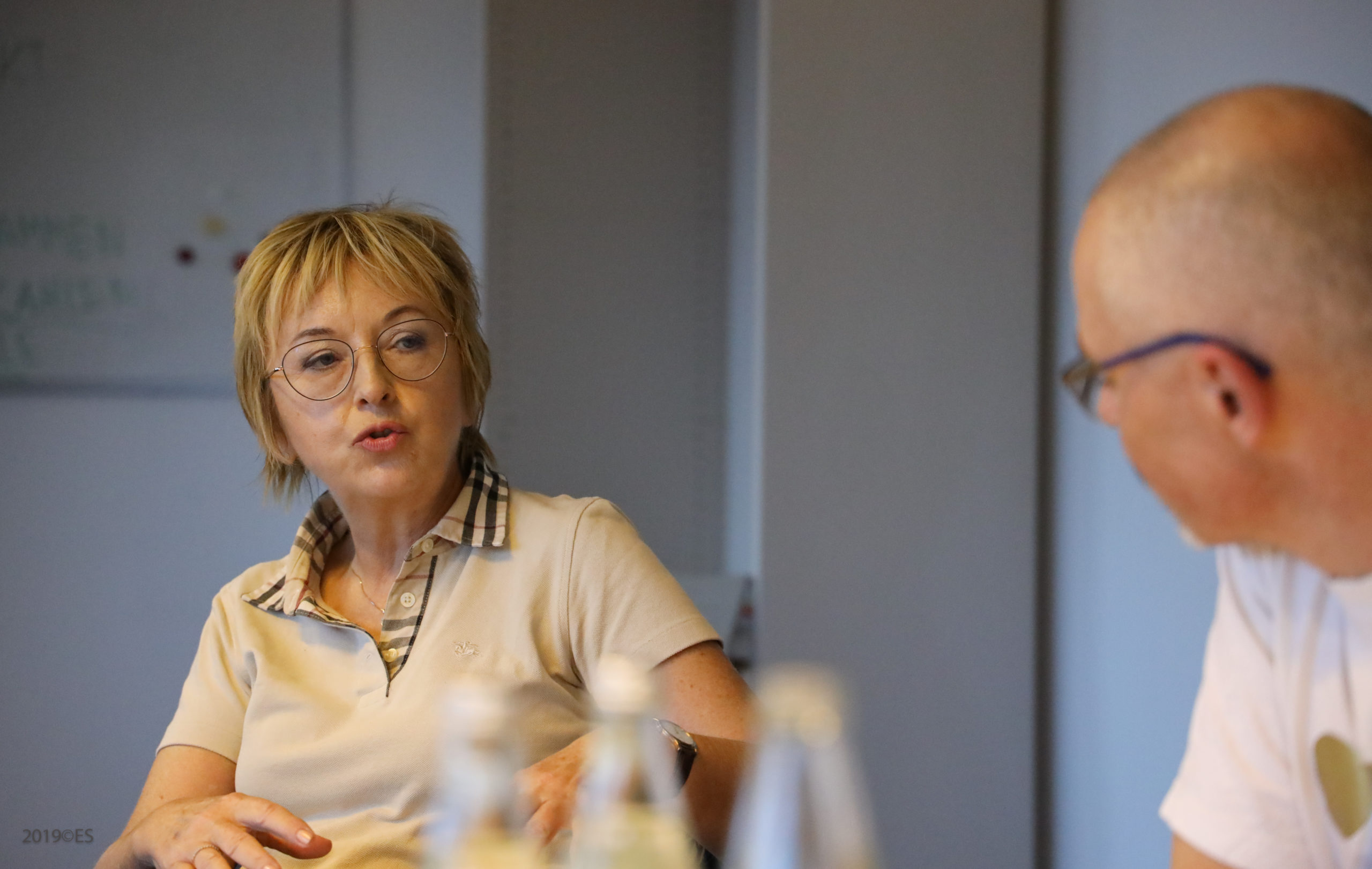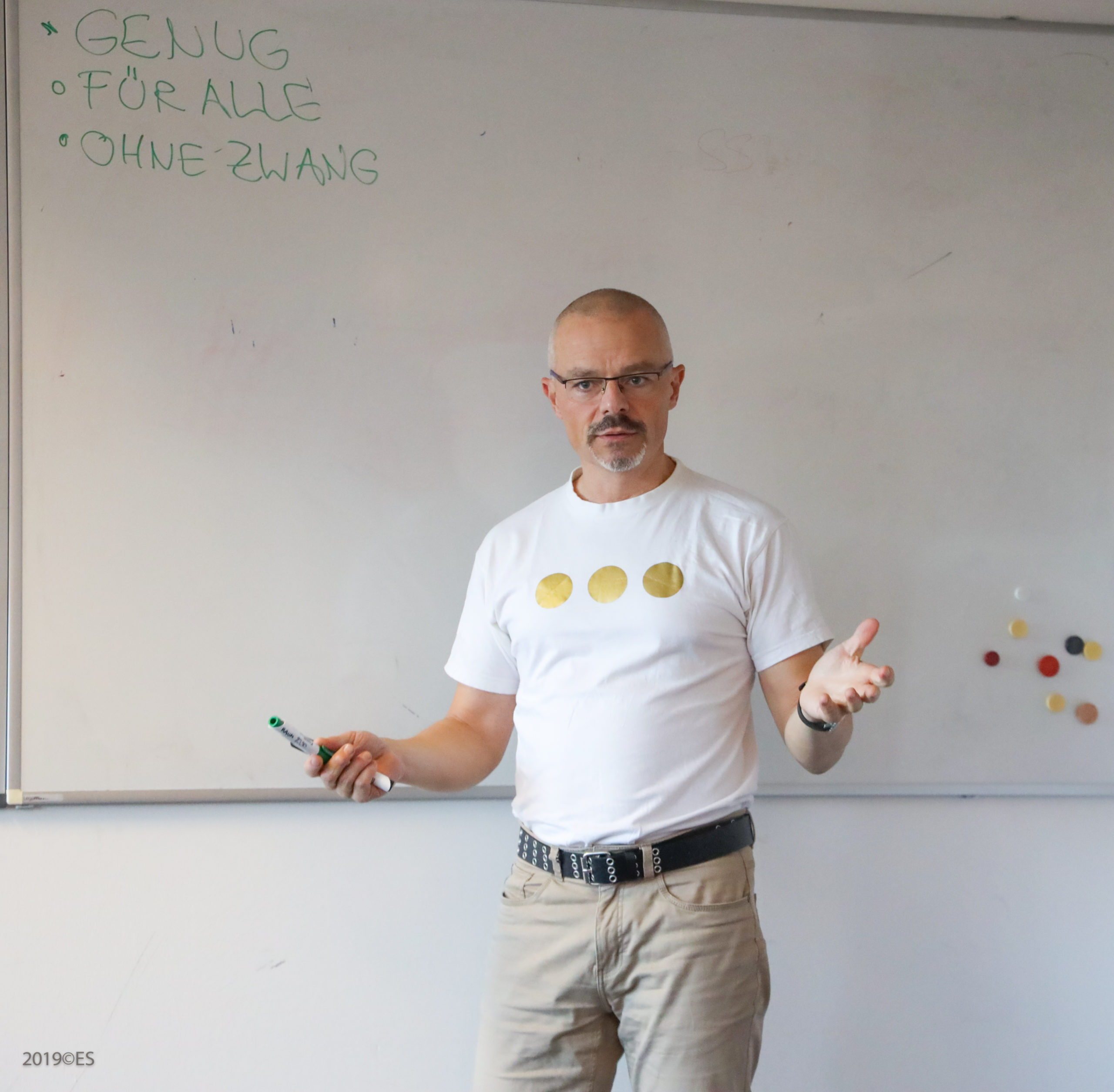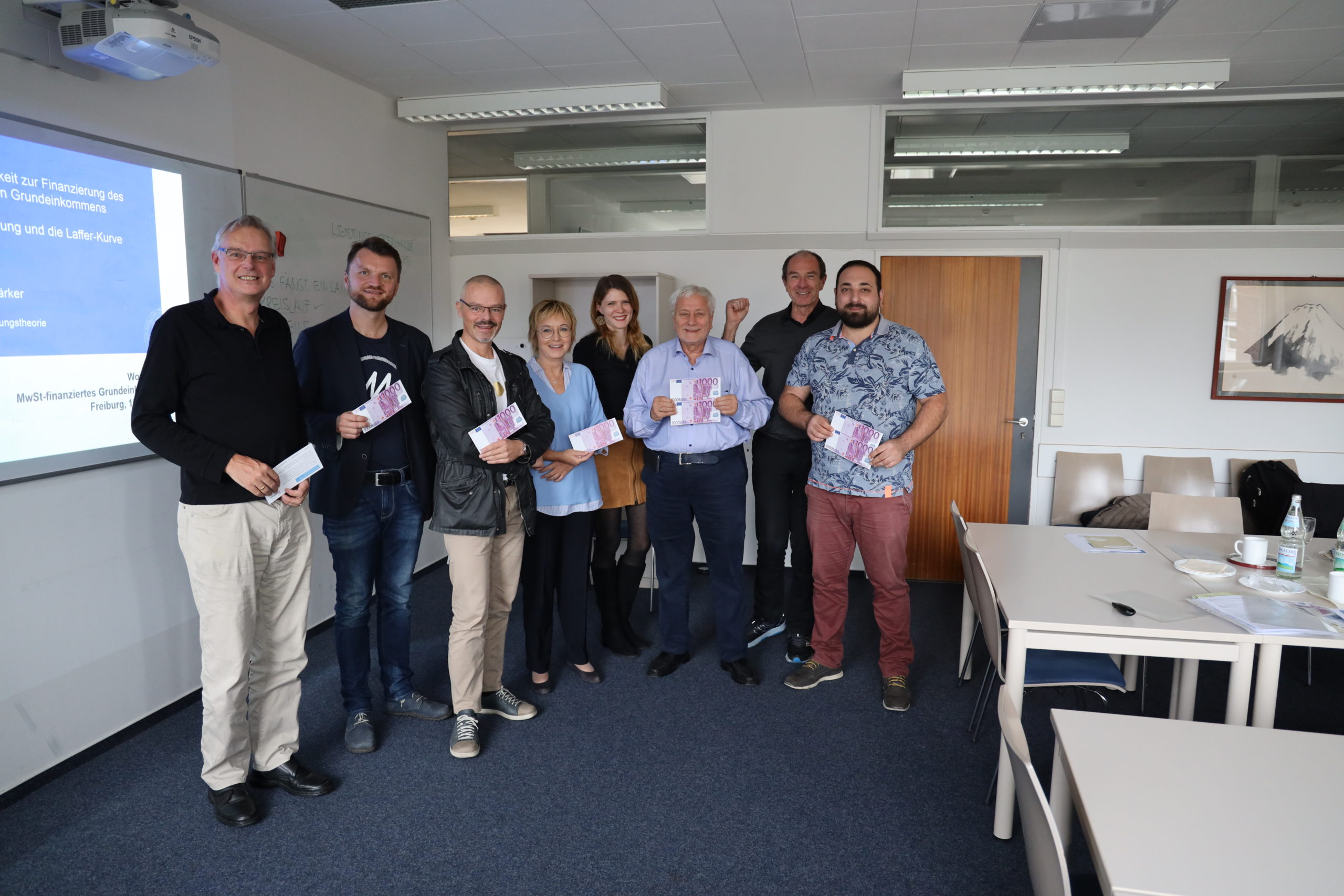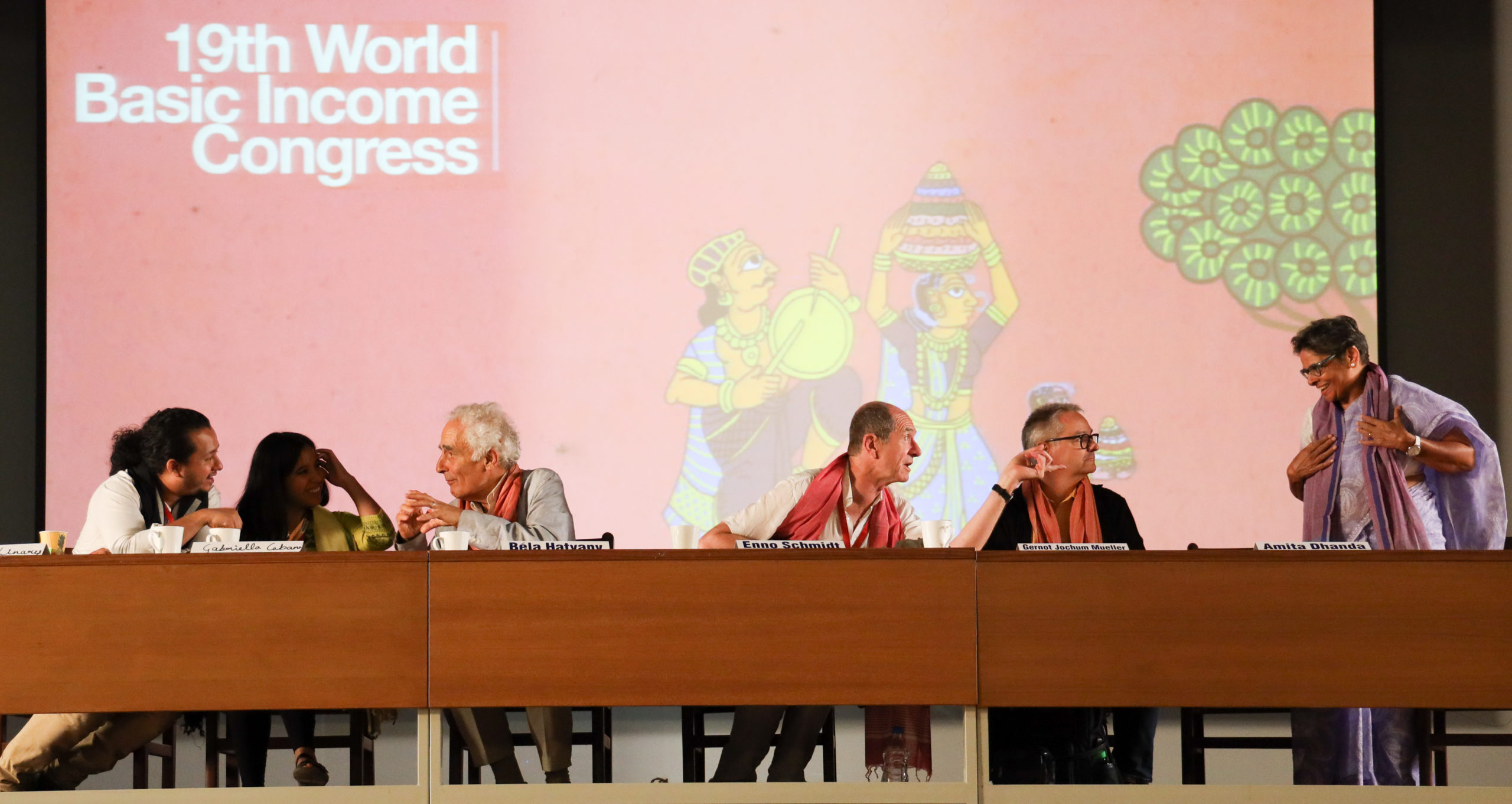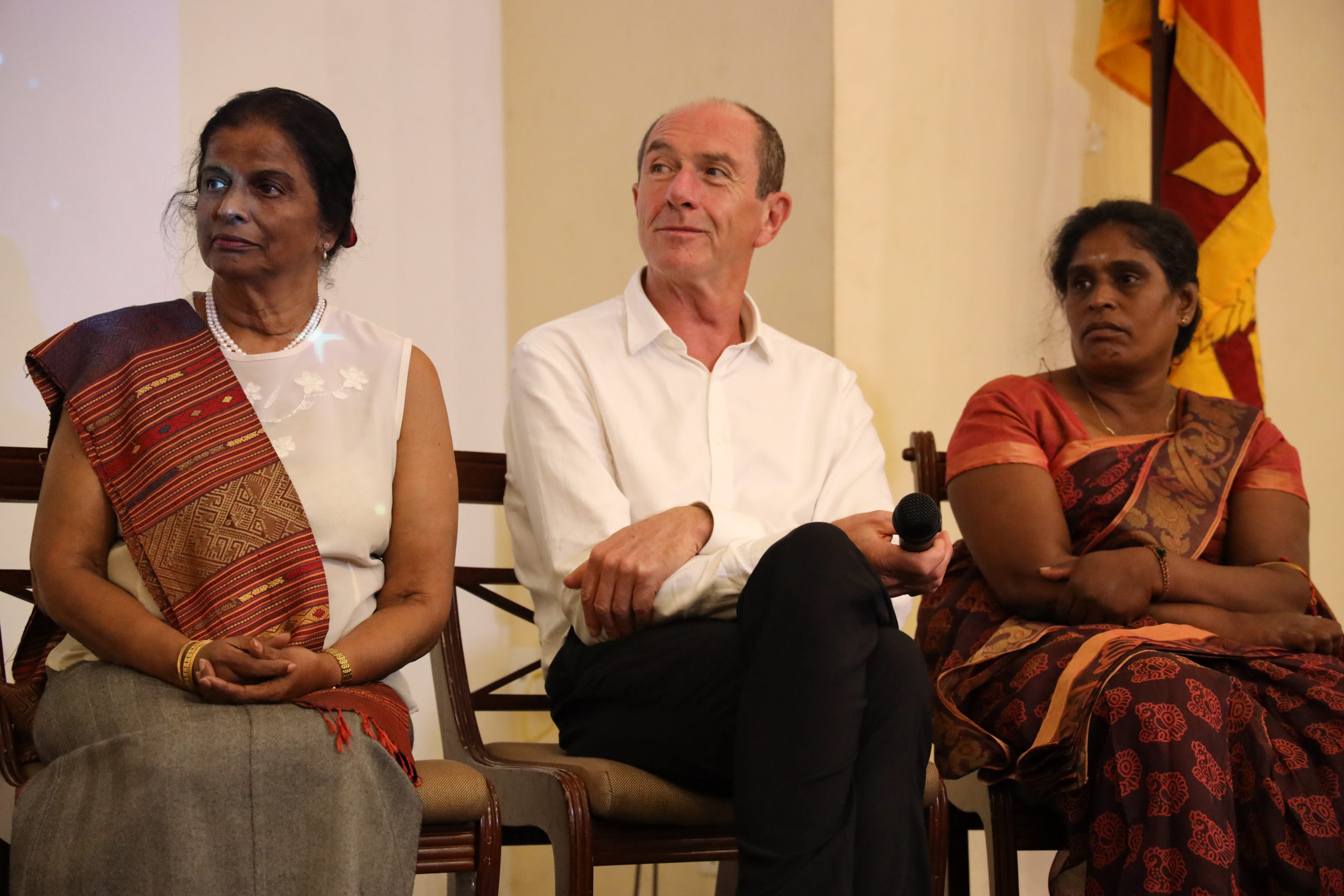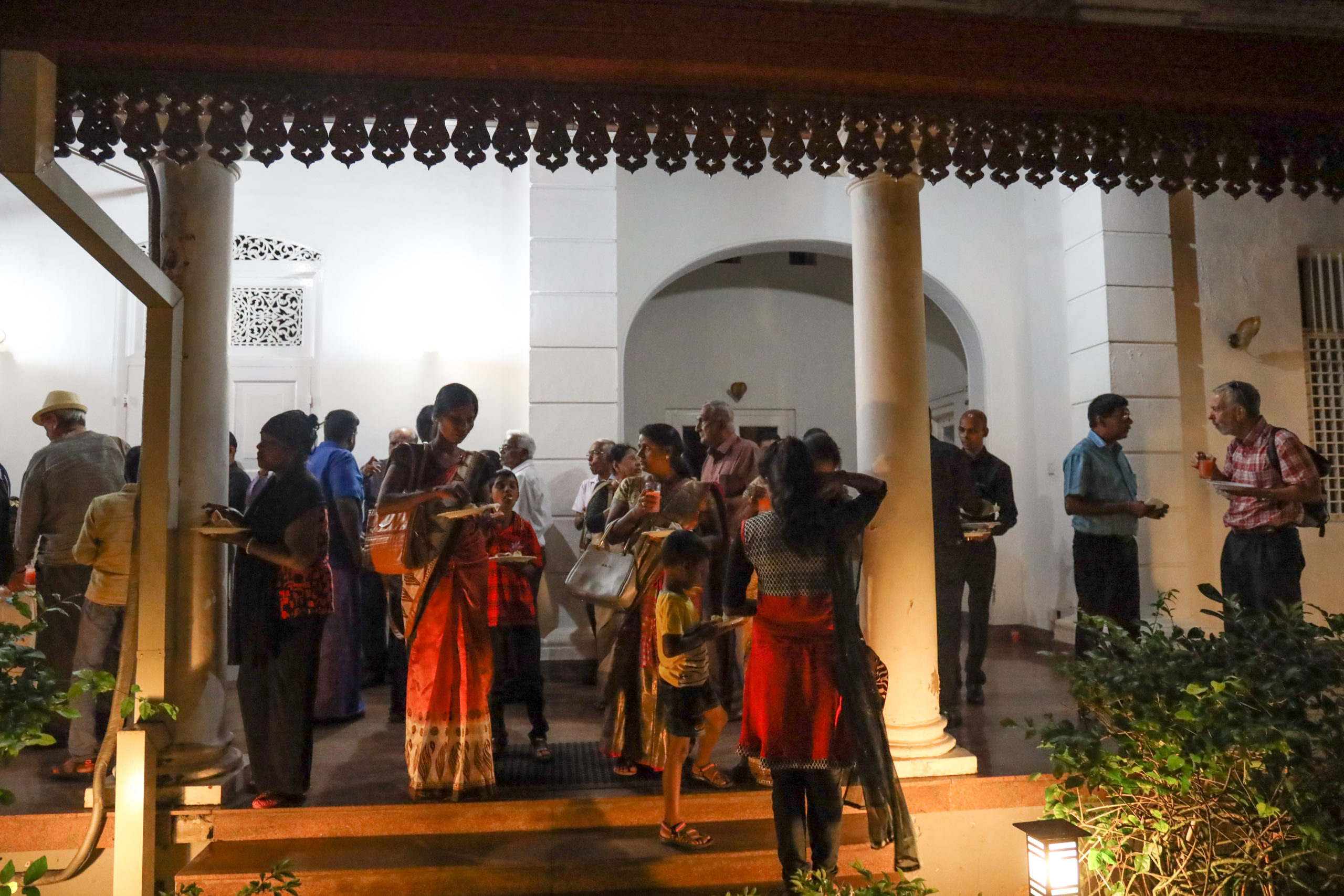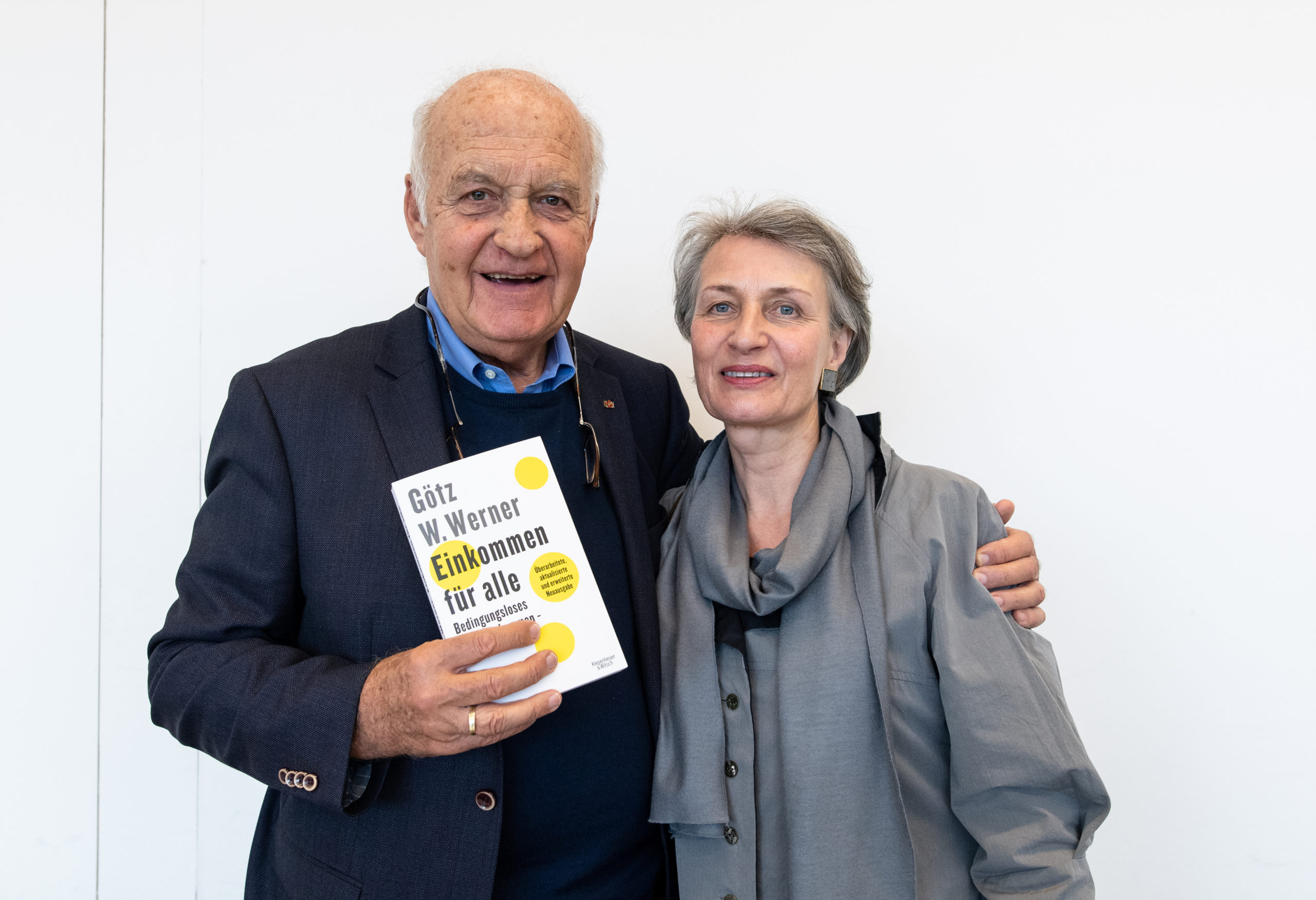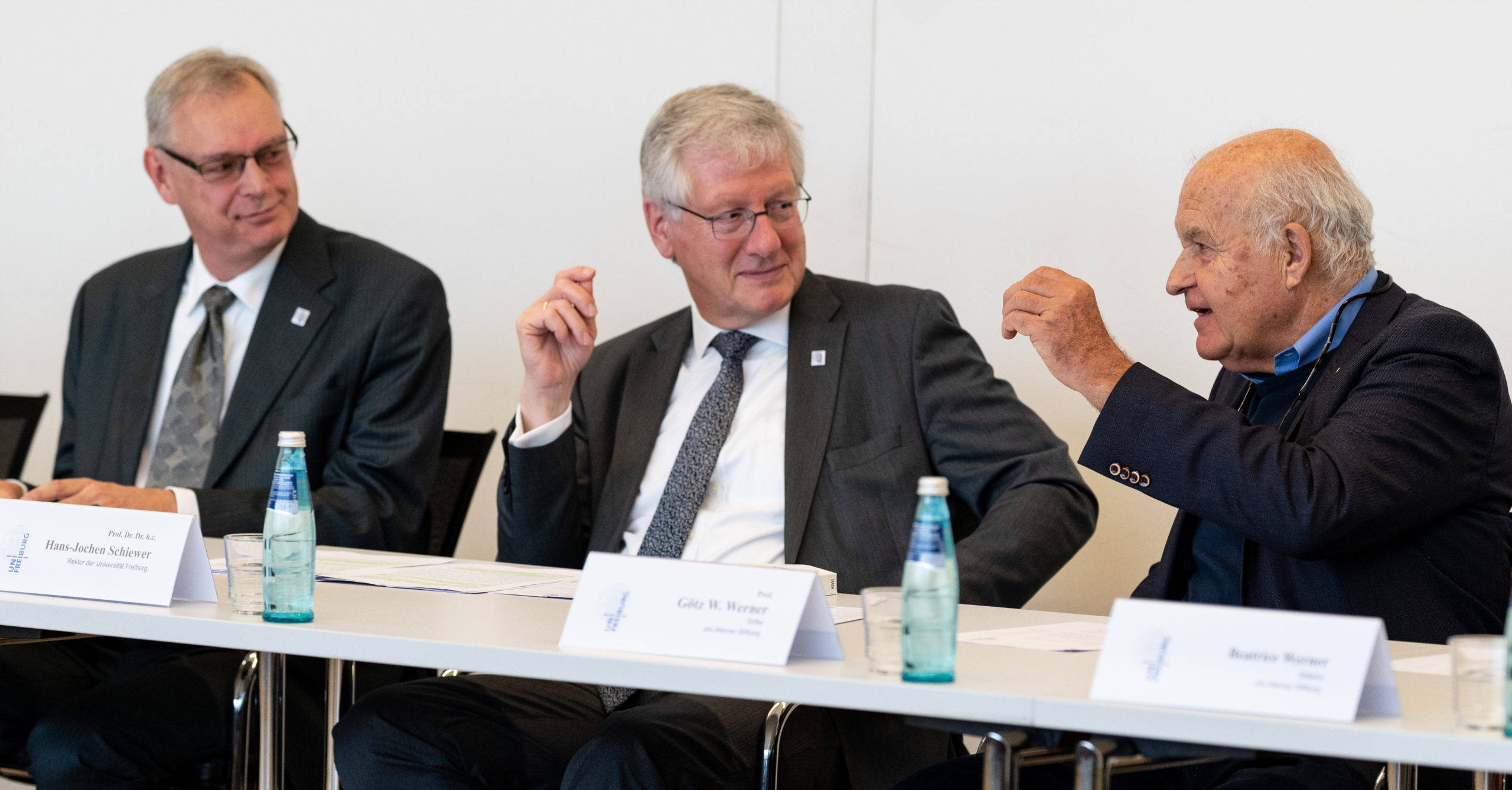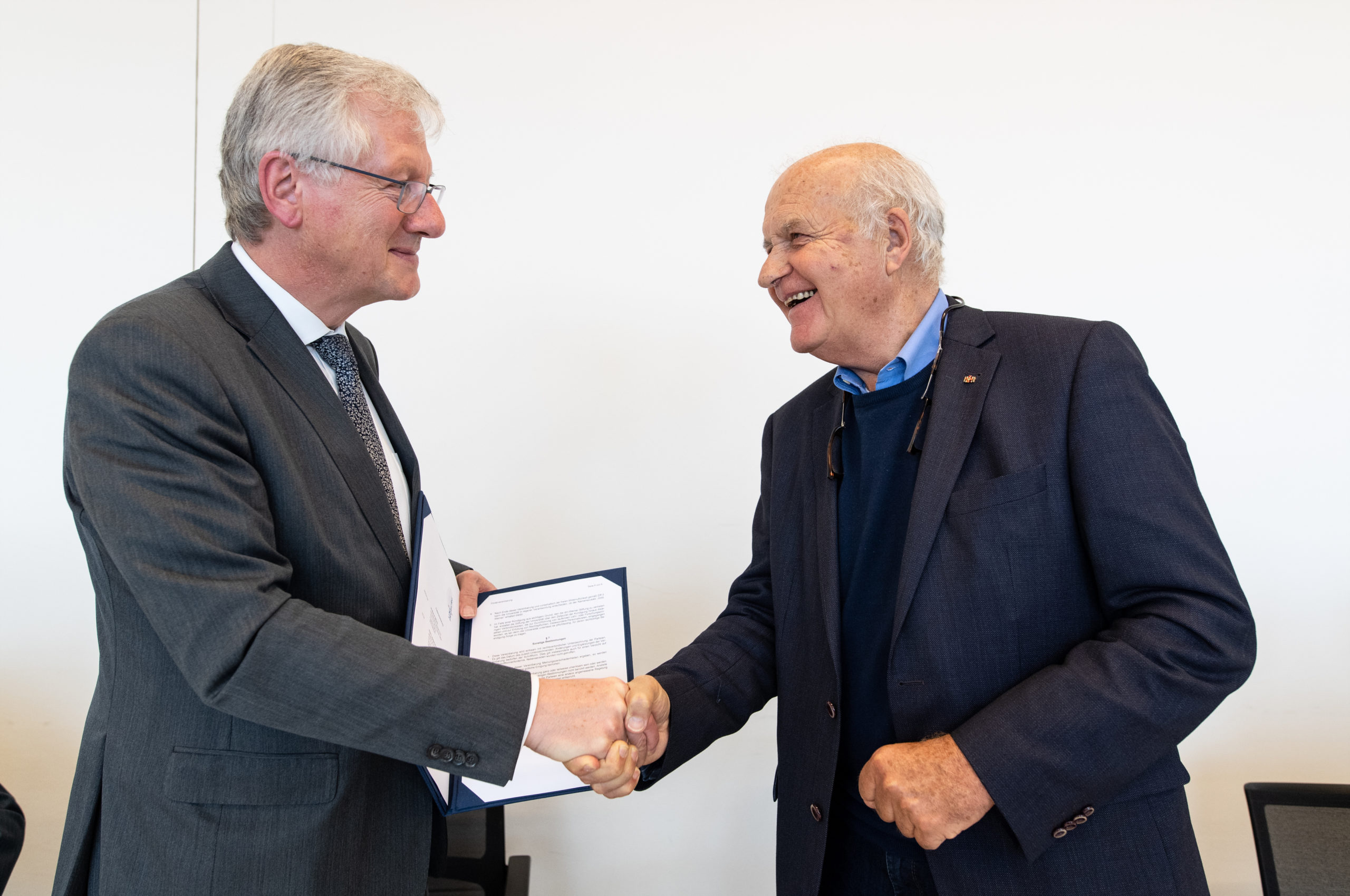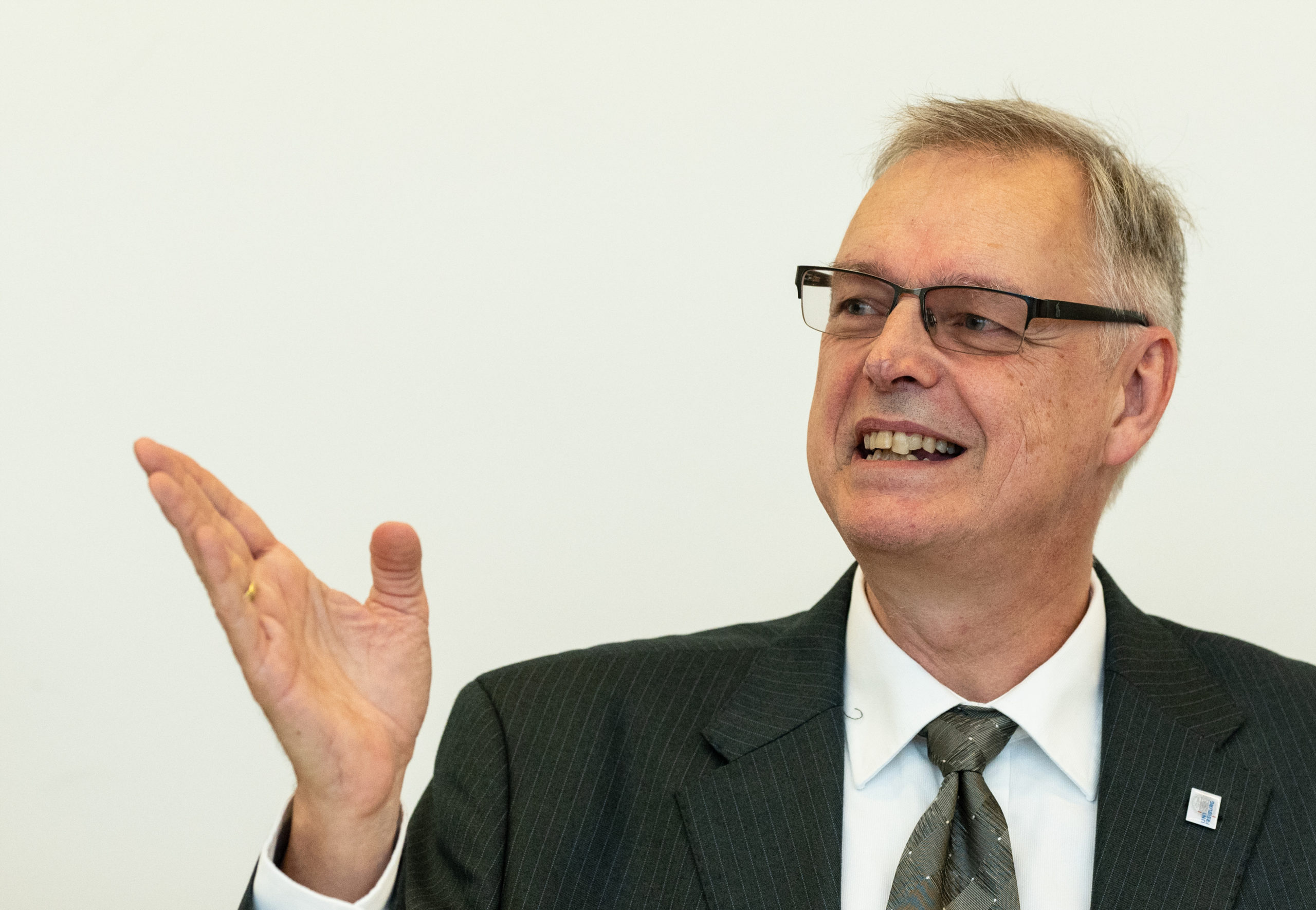Video Statement of Prof. Dr. B. Neumärker about his model of a Netto Basic Income in times of crisis
In addition to the video the more in-depth written interview with Prof. Neumärker.
Would an unconditional universal basic income (UBI) help better in the corona crisis than the deferrals and loans granted by the state?
Prof. B. Neumärker: Yes. Instead of constant improvements due to new aid needs and the partly artificial rules for granting funds, there would be universal protection for all. My idea of a net basic income (NBI) is that every person in the population should receive € 500-700 per month unconditionally during the crisis period, and that rent payments and loan interests should be suspended. They can only be resumed after the crisis period. Net therefore means: without rent and loan payments. The NBI paid out plus (suspended) rent, interest and redemption payments results in the gross amount, which can then serve as a point of reference for a basic income outside times of crisis. Landlords and lenders as well as their employees naturally also receive NBI in times of crisis.
In this way, no credit assistance or transfers have to be given in order to be able to pay rent and loans in the sense of conventional thinking. Because these types of income can be “shut down” with the introduction of NBI.
Interest income from renting, leasing and money lending is, from a regulatory point of view, “non-performing income”, which cannot be serviced excellently in the crisis.
Instead of allowing or negotiating deferrals of rent payments and loan interests in individual cases, this is regulated from the outset and in principle for all with the NBI.
This will help many self-employed people, small entrepreneurs and startups, but also everyone else has basic security when the crisis hits them in terms of their income from work. Credit assistance is needed to a much lesser extent.
The NBIU is a “symmetrical” concept for “crisis justice”. Otherwise, there is a gigantic redistribution towards rent and interest income recipients, as their incomes continue to flow unhindered or are in the meantime financed by additional borrowing from others, while many lose their income irretrievably for a time due to the government’s crisis management measures.
The NBI is comparatively easy to finance, as it is at a relatively low level of funding. I calculate for Germany an extra € 50 billion on top of the existing expenditure of the traditional social system. However, health has a special role to play in the current crisis, which is why expenditure on the health system and the associated part of the social security system must, of course, be considered separately.
The NBI is used to finance a base of consumption, which is of course also necessary in the crisis.
The important business based on it can, of course, continue to generate income from work, profit and capital.
Asymmetry is created in the crisis by these continuing activities and, above all, by services needed for health measures and critical infrastructure. For this, the state has to open up extra pots even in the case of NBI.
The large share of unpaid work in society – more than 50% of all work performed – is also ensured by the NGE. This applies, for example, to the care economy (nursing, looking after children, etc.) and is thus more a classic domain of women. The NBI makes living and thus also working possible, no matter how high their rentier status in the market for “investors” is.
The NBI, which creates crisis security and crisis justice, forms the basis in a reform concept of the long-term introduction of an expanded unconditional basic income (UBI), among other things instead of unemployment benefit and basic pensions. In the context of economic development after the crisis, the NBI can be increased to a “participatory UBI”, i.e. to a UBI of approx. € 1200 to € 1500 per month, since a higher basic income can be financed when the economy returns to “normal operation”. In this reform step, “UBI” then means gross basic income as opposed to net basic income. In the event of the next crisis, the UBI can be reduced to an NBI again, like an “automatic crisis mechanism”, which means that the population is basically protected.
The old latrine slogan that the UBI cannot be financed and would lead to laziness on a large scale cannot be upheld by the crisis experience.
Thinking Europe-wide for a change: Do you also see the UBI as a solution for the people in the particularly affected regions in Spain and Italy?
Prof. B. Neumärker: In Spain, the unconditional basic income is already being considered. They can see the advantages described. But the political enforceability depends on politicians who are still unable to think the new even now and who are stuck in the old, largely neo-liberal, one-sided or at least dominantly competitive economic system from the time before the crisis. In Spain, market-compliant or capital-led economic policy is on the brink of collapse, primarily because of the fact that there is a minority government.
With a view to European cohesion, I would also argue in favour of the so-called Euro Dividend, which is paid out throughout Europe as a UBI and can be added to national social systems. The amount of a Euro Dividend, for example, would be € 250 per month for each citizen of the EU. This amount can be financed by euro bonds during the crisis and then by VAT or – even better – by a tax on integration gains because the economic and social advantages and disadvantages of European integration are shared by all citizens. This is solidarity, not least in the sense of tolerance, in that the benefits of integration are now distributed quite unequally. At the international level, Germany’s high integration gains are “tolerated”, and Germans show “gratitude” for the poorer regions and countries. The Euro Dividend also makes individually varying integration gains and losses acceptable at the national levels.
The corona crisis will impose unprecedented burdens on all countries. How could the UBI be financed?
Prof. B. Neumärker: Compared with the immense amount of debt that Germany, for example, has taken on for all kinds of credit assistance, which in the long term gag the public financially both through the public budget and privately and drive them into dependency because of the federal government’s loan repayments and the servicing of the loans taken out, the amount of government borrowing to finance the NBI would be relatively small in the crisis period. Financing in the crisis would, therefore, be comparatively comfortable through federal borrowing.
In post-crisis times, the NBI can be expanded to the BGE and financed through VAT or as a negative income tax. The population will certainly appreciate this security and will not regard the financial burden as too high.
Economists expect a severe economic crisis after the corona crisis. What would the unconditional basic income mean in the situation of a heavily braked economy? People would have money, but there would be no goods to buy?
Prof. B. Neumärker: As long as the economy is not geared to performance, the Net Basic Income serves the “maintenance economy”: food, basic services, maintenance of critical infrastructure. Here, the government simply has to ensure that the necessary trade is maintained. After all, demand is basically secured by the NBI.
Depending on how quickly the economy and society (!) recover, the NBI can be increased up to the participatory UBI. By building up production there is then more potential for goods consumption. At the same time, however, the people have also gained time sovereignty and self-determination options through the unconditional basic income. At the same time, power in society, politics and the economy is redistributed to the individual. The citizens should let this cost them something.
How realistic do you consider your scenarios to be? When would be the best time to implement the universal unconditional basic income?
Prof- B. Neumärker: The best time is now and as soon as possible.
The discussion is getting more and more heated. Not only in Spain: petitions are also running quite successfully in Germany in particular for self-employed people, small entrepreneurs, artists, but also for employees who are suddenly made redundant, do not feel sufficiently protected by unconventional conventional policies. There is a high risk of private insolvency. People do not want to be dependent on the fiddling with apparent requirements and not on the questionable accuracy of individual transfer payments and credit assistance when every day new “necessities” make the previous state action obsolete again and again and also make the state weak.
This current procedure is a muddling through of the unstructured way, which should be stopped. If a large number of citizens recognize this – and the demand for the introduction of UBI comes from civil society – and if the state knows how to act only in a less and less structured way, UBI has a chance of introduction, especially through the NBI in the crisis.
The subsequent reform and stabilisation step in the post-crisis period will be able to build on the experience with the crisis basic income and will consequently have more support in society and politics than the introduction of participatory UBI in good times. The crisis allows a justifiable gradual build-up instead of a big bang UBI reform or a slimmed-down, untimely partial UBI only for the sake of increased implementation chances in a phase of a prospering economy.
Working as with basic income
About the author: Ronnit Wilmersdörffer has been working in the social start-up sector for five years and recently joined the Expedition Basic Income team. Expedition Basic Income initiates and accompanies referendums for a state model experiment of an unconditional basic income. By the way, the expedition is currently looking for a front-end developer – click here for the call for applications (in German).
How can one do justice to the purpose and the people in a team equally? This is not a trivial question: in business and the social sector alike, sacrificing for work (or a cause) is often expected or at least encouraged. Despite New Work Methodology and agile mindsets, the well-being and self-organisation of employees usually remains a means to an end to improve performance. So what does an organisation look like in which human well-being is more than a generously designed factor towards efficiency?
For five weeks I have been part of Expedition Basic Income, which is dedicated to the political advancement of Unconditional Basic Income. This is based on the freedom of the individual as an end in itself, but also on the belief that this is what enables people to have a positive social impact. The founders have also firmly anchored this attitude in their organisational culture: in addition to the expected drive, vision and entrepreneurial attitude, the preservation of self-determination – beyond social expectations and pressure to perform – is a significant component of organisational culture. This manifests itself on different levels.
On the one hand, the framework conditions for cooperation are individually designed – as is now the case in many places. On the other hand, there is an honest respect for the fact that people need space in their lives beyond work and projects: for hobbies, family, relationships and for physical and mental health. That is why the regular working week is only 32 hours long. Other elements of cooperation also change when the human component is given equal space to the factual work. In the team, there is relatively a lot of talk on moods, discomfort or conflicts on the spot – which is by no means always pleasant. But it also opens up space for research into causes, consideration, mutual support, conflict resolution and a more agile, sustainable way of working together.

The founders* of Expedition Basic Income – Laura and Joy.
It always remains a tightrope walk to reconcile the individual needs of all team members and the factual requirements of our work. Because, as everywhere else, in this organisation there tends to be more work than personnel, bottlenecks and hard deadlines. We also work overtime, sometimes even beyond our comfort zone. But the difference is this: If the baseline is self-care and sustained personal effectiveness – and not efficiency as an end in itself – then exceptional workload is more like a 45-hour week than a 65-hour week. Decisions are made to avoid such situations as far as possible and not to accept them. The space for self-care is confidently demanded by all team members and not excusingly justified. Because this is how we imagine a working world in which people participate out of their own motivation and not out of economic necessity. And this is the kind of world we are ultimately working towards.
Enno Schmidt at the Financial University in Moscow, “Growth or Recession: What to Expect?”
The aim of the trip was to give some presentations on Universal Basic Income (UBI) at the congress, to meet Joseph E. Stiglitz, Nobel Prize Laureate in Economics and former Chief Economist of the World Bank, to discuss possibilities of scientific research on BGE and the Freiburg Institute for Basic Income Studies (FRIBIS), to meet activists of the Russian Basic Income Movement and to start building a FRIBIS group with professors of the Financial University in Moscow.
In his presentation, Joseph Stiglitz pointed out many things and called for a number of things to which a BGE could be an answer. He showed, for example, that typical financial incentive systems are neither effective nor efficient, in fact they are counterproductive, that non-material incentives have more impact, that societies/economies perform better when inequality is low and when social/economic action takes into account the impact on others. Rules and norms, he stressed, play a major role. He deplored instability and the loss of trust in institutions caused by the exploitative behaviour of the financial sector. The social contract, Stiglitz said, had been broken. Uncertainty slows down progress, hinders innovation. Economic security increases the necessary willingness to take risks. The economy must be there for the people, not the people for the economy.
A renewal of the social contract? Trust as a social basis, more stability and economic security for all not at least for more risk taking innovation? A renewal of social and economic norms? Reducing inequality, reducing the misconception that financial incentives generate worthy output? All this fits in with an attitude that can consider an Unconditional Basic Income.
Enno Schmidt reminded Mr. Stiglitz that he had made a statement on the 2016 referendum on the introduction of an UBI in Switzerland. He said at that time: An Unconditional Basic Income is the right step for Switzerland.
This time, however, his opinion on the BGE was rather incomprehensible and negative. He did not believe, he said, that people would be happy without meaningful work. The state must ensure that everyone can find a paid job. A life completely without work, perhaps in spiritual immersion, was probably attractive only to a few, he mused. There is also a lack of money for such a basic income. Money is scarce, he stated. And the basic income has to be high enough to really live on it.
In Russia, Unconditional Basic Income is still little known and not discussed. Who wants money should work. If the money just would be given without a request, people wouldn’t work and would be depraved. That is unanimously and unquestionably the attitude against a UBI. In addition, in Russia – as in other countries of the former Soviet socialism – the first thing that comes to people’s mind with the idea of a UBI is communism. A similarity is seen between the UBI and the ideals of communism. Under the objective of these ideals, much blood was shed, much suffering and oppression took place in the real existing Soviet socialism. They do not want that again. However, the assessment of the Soviet period is not so unanimous. Some think it was better then than today. There were more opportunities, things were fairer, and many good achievements were dismantled after the end of the Soviet Union. But also today the people of Russia are proud of their achievements and believe that as a country they are doing better and performing better than every other country. Just as people in other countries claim it about their country.
Under the mediation of Alexandra Pilyus and in talks with Enno Schmidt, a team of top-class academics from the Financial University came together for a FRIBIS group.
Vladimir Putin’s advances toward a guaranteed minimum income, higher pensions, state subsidies for children and families, etc. are going in the direction of a change in the social contract, in which a UBI is no longer completely unthinkable, but could even be seen as a simplification, an increase in effectiveness and efficiency among the goals set.
Report from the Opening Ceremony
Freiburg Institute for Basic Income Studies (FRIBIS) has been established at the University of Freiburg, Germany. The opening ceremony took place on Oct. 28th.
FRIBIS is intended to become an international center for UBI investigation and cooperation.
Scientists from various faculties and basic income protagonists from civil society, NGOs, activists, work together in interdisciplinary topical groups to examine the unconditional basic income in all its facets, to scientifically accompany UBI projects and to contribute research results for implementation strategies. Knowledge transfer from science meets the challenges of civil society and strengthens its opportunities.
Founding directors of the Competence Network FRIBIS at the University of Freiburg are professors each from the Institute of Computer Science, the Institute of Psychology, the Institute of Ethnology, the Institute of Educational Science, the Faculty of Theology and Prof. Dr. B. Neumärker of the Götz Werner Chair of Economic Policy and Constitutional Economic Theory.
In May of this year, the Götz Werner Professorship was established with backing of the rector of the University of Freiburg. The donors of the Götz Werner Chair are Beatrice and Götz W. Werner. Götz Werner is the founder of the dm drugstore-market group with 60 thousand employees today. In the last decades he already has been one of the most important voices for UBI in Germany. The Götz Werner Chair was established for the head of the department of Economic Policy and Constitutional Economic Theory, Prof. Dr. Bernhard Neumärker. At the Götz Werner Chair, Enno Schmidt is in charge of public effectiveness, transfer and networking. FRIBIS is the next level based on the Götz Werner Chair.
Interdisciplinary teams already exist on following topics: “VAT-financed basic income”, among others with H. Pape, founder of “Generation Basic Income Austria” and Prof. Dr. Dr. F. Schneider from Linz / “Psychology of the Basic Income”, a cross-faculty research program / “The management of UBI NGO’s” / “Foreign Aid Basic Income”, UBI as strengthening the resilience of societies in particular in Africa against the sellout of the country and resources / “Sanction-free / HartzPlus”, an ongoing pilot-project in Berlin, the first realization of a guaranteed basic income in Germany, among others with project manager Helena Steinhaus and Prof. Dr. R. Wieland from the University of Wuppertal. Further national and international teams and cooperations are in preparation. FRIBIS will also organize conferences and create a young generation research team.
Contact: enno.schmidt@vwl.uni-freiburg.de
Website: https://www.fribis.uni-freiburg.de
A Freiburg Discourse on UBI
Within the event series “Freiburg Discourses” (Heinrich Röder), Prof. Dr. Friederike Spiecker and Prof. Dr. Bernhard Neumärker met on 25 October 2019 at the University of Freiburg for a discussion on Unconditional Basic Income.
Prof. Spiecker is co-author of the book “Irrweg Grundeinkommen” (with Prof. Dr. Heiner Flassbeck), Mr Neumärker holds the Götz Werner Chair for Economic Policy and Constitutional Economic Theory at the University of Freiburg and is founding director of the “Freiburg Institute for Basic Income Studies” (FRIBIS).
It was remarkable that Prof. Spiecker clearly and empathically saw and addressed the undervaluation of women’s work and non-profit unpaid work in general, the degrading and rather paralysing than promoting practice of the Hartz IV legislation, including its magnifying effect on the low-wage sector, structural unemployment and the increasingly precarious work and living situation of very many people, but that she resorted to the primacy of gainful employment and the demand for higher minimum wages to solve the problems. Where one could have written behind the description of the problem as a solution: “Unconditional Basic Income”, she relied on the old economic methods of calculation.
Prof. Neumärker took up statements from her lecture in order to disenchant the old way of thinking and transfer it into a logical understanding of Unconditional Basic Income.
Both were largely in agreement in the description of the problem, diametrically opposed in the perspective of the solution.
By Enno Schmidt
First meeting of the VATUBI Group
Value Added Tax and Universal Basic Income, is this a congenial couple?
One asks about its social component, the other about its financing.
A UBI as a disbursed tax allowance for the VAT included in consumer prices?
Can tax collection be switched to a sole and then high rate of VAT?
What is the effect?
On suggestion of Helmo Pape, founder of “Generation Basic Income” in Austria, on October 14th and 15th an Austrian team of scientists met with Prof. Dr. Bernhard Neumärker and Enno Schmidt in Freiburg to establish a FRIBIS group about the effects of a change in the tax system on consumption tax/value-added tax, and VAT as a form of financing the UBI.
The working group will start its proceedings in spring 2020.
Scientific team:
- Dr. Elisabeth Dreer, Senior Sientist at the Research Institute for Banking of the Johannes Kepler University Linz, Austria
- Prof. Dr. Dr. h. c. mult. Friedrich Schneider, former Prof. of the Department of Economic Policy, Research Institute for Banking, Johannes Keppler University of Linz
- Dr. rer. soc. oec. Florian Walkobinger, Society for Applied Economic Research, Innsbruck, Austria
- Prof. Dr. Bernhard Neumärker, Götz Werner Chair for Economic Policy and Constitutional Economic Theory, University of Freiburg, Germany
Transfer team:
- Helmo Pape, Banker, Founder “Generation Basic Income”, Vienna, Austria.
- Enno Schmidt, artist, co-founder of the initiative “Basic Income Switzerland”, Research Assistant at the Götz Werner Chair at the University of Freiburg.
Presentation of the Götz Werner Chair on the 19th World Basic Income Congress in Hyderabad, India
BIEN 2019
Presentation of the Götz Werner Chair on the 19th World Basic Income Congress in Hyderabad, India.
On 19th Basic Income Earth Network (BIEN) Congress in August 2019 in Hyderabad, India, Prof. Dr. Bernhard Neumärker and Enno Schmidt presented the Götz Werner Chair of the University of Freiburg and stimulated contacts for the Freiburg Institute for Basic Income Studies (FRIBIS) to be established.
Enno Schmidt chaired the panel “Basic Income and the Financial Feasibility Question”, with Prof. Neumärker as speaker, and “Basic Income as the Foundation of a Caring Society“ with among other Bela Hatvany as an attendee.
Following the conference, Enno Schmidt travelled to Sri Lanka, where, inspired by him, a small basic income movement was created and where basic incomes were awarded to individuals for the second time.
Founding of the Götz Werner Chair at the University of Freiburg
The signing ceremony of the Götz Werner Chair for Economic Policy and Constitutional Economic Theory took place on May 21th, 2019, in the Rectorate Building of the University of Freiburg. The Chair is held by Prof. Dr. Bernhard Neumärker, Director of the Department of Economic Policy and Constitutional Economic Theory at the University of Freiburg.
Prof. Dr. Dr. Hans-Jochen Schiewer, Rector of the University of Freiburg, said in his speech:
“No other entrepreneur in Germany has thought of the unconditional basic income as consistently and as emphatically as Götz Werner. It is in the tradition of Ordoliberalism, the Freiburg School of Economics, to develop a regulatory framework for this model: Its founder Walter Eucken saw the main task of economic and social policy as the establishment of a ‘functional, lasting and humane order’ of economy and society. We are therefore very pleased and grateful in view of the great opportunity that the dm Foundation offers us to use its help to make further groundbreaking research contributions to the question of how economically and socially sustainable coexistence can be organized for all people”.
Prof. Götz W. Werner, founder of dm-drogerie markt, emphasized: “Our world of work has changed fundamentally in the last ten or fifteen years. In order to master the challenges of the future, we must separate work and income and recognize work as a creative activity. The Archimedean point is the idea of an unconditional basic income. Research at the University of Freiburg will provide decisive scientific and socio-political impulses for the introduction of an unconditional basic income”.
Prof. Dr. Bernhard Neumärker mentioned: “The Basic Income opens up an enormous field of activity for a ‘New Ordoliberalism’, which questions the one-sided orientation towards gainful employment and the competitive economy, which characterizes the currently dominant economic liberalism, and instead focuses much more on creative and recreational leisure, unpaid work – e.g. caring for relatives – and the sense of community service”.



